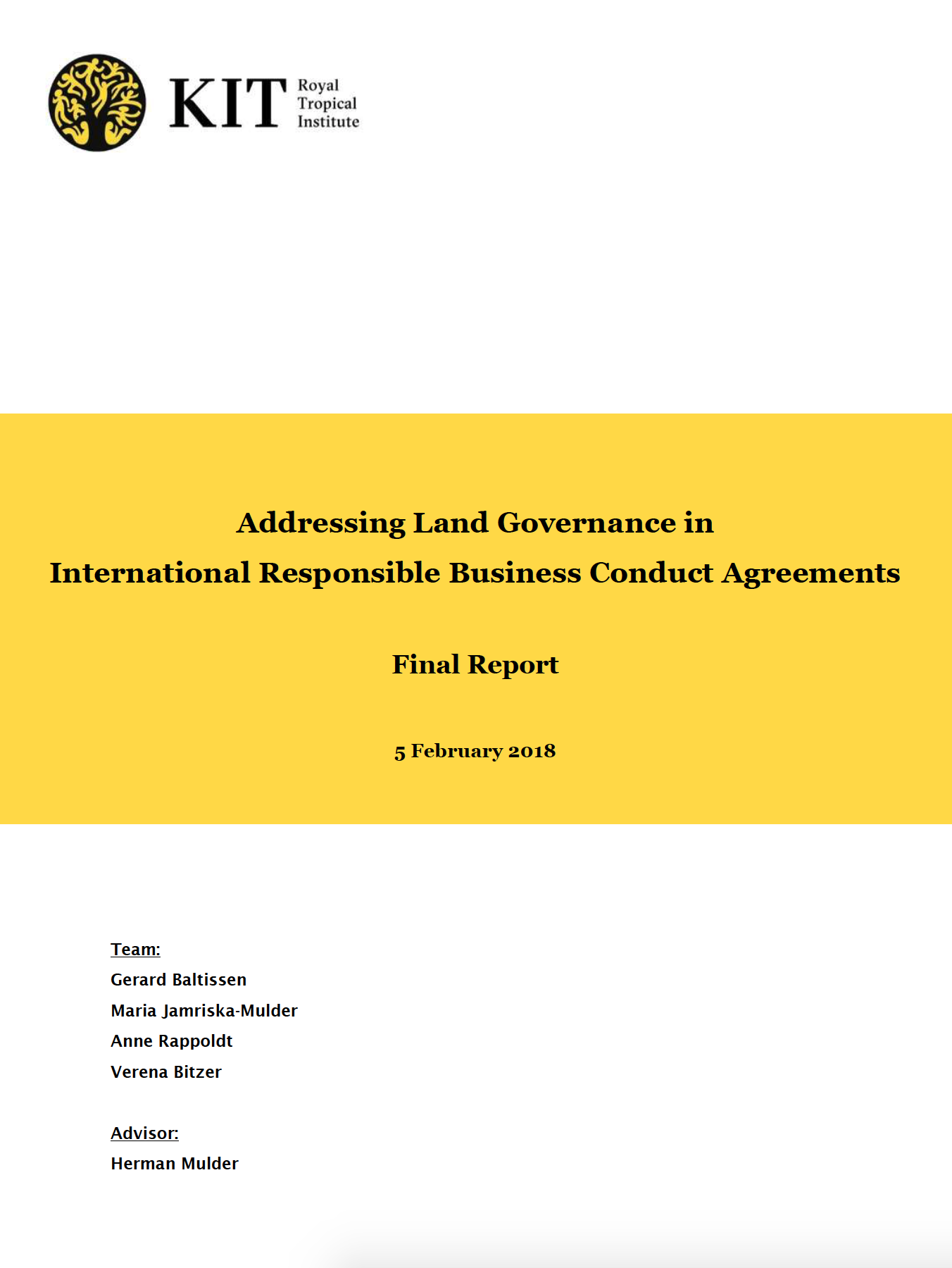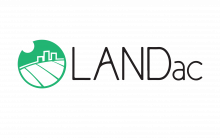Resource information
The study was commissioned to the KIT Royal Tropical Institute in July 2017 by the Land Dialogue, with financial support from the Dutch Government. The objective is to provide insight and guidance into the relevance of land governance as a possible priority theme t o be considered in the process of the International Responsible Business Conduct (IRBC) Agreements. The study was conducted in the period between July and November 2017 and included desk research, workshops and interviews with a diverse set of stakeholders in the IRBC process. The opinions expressed in the study are those of KIT and do not represent the views of the interviewees.
Land governance is, next to climate change, one of the biggest and most complex political, social, natural and economic challenges of our time against the background of finite resources on the one hand and a growing, global population on the other hand. Current patterns of land tenure and use are unsustainable and have various, often cumulative adverse impacts, including ecosystem degradation, loss of biodiversity, freshwater decline, human rights issues, greenhouse gas emissions, subsistence farming, unsustainable livelihoods, local political conflicts and land grabbing. Companies and entire industry sectors are causing or contributing to such adverse impacts and/or are, conversely, dependent on and even highly affected by land governance issues.
The IRBC Agreements for selected high impact industry sectors are initiated by the Dutch Government, facilitated by the Social-Economic Council, and led by the specific industrial sector associations. IRBC agreements are typically tripartite, involving businesses, civil society organisations (trade unions, NGOs) and the government. The reference frameworks for the agreements are the ‘ OECD Guidelines for Multi-National Enterprises’ and the ‘ UN Guiding Principles on Business and Human Rights’ .



